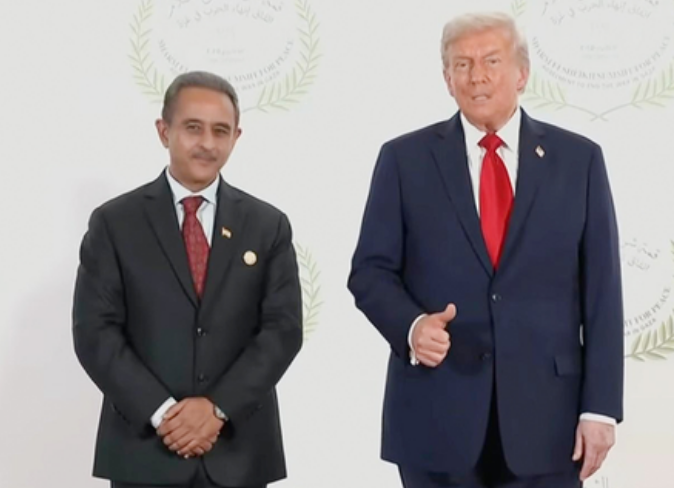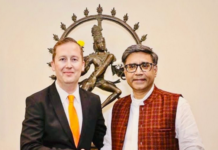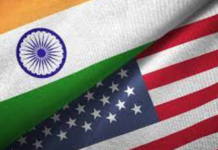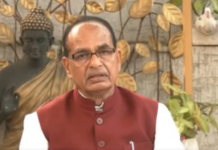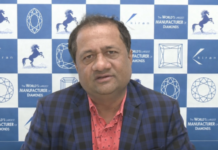NEW DELHI– Prime Minister Narendra Modi, though absent from the Gaza Peace Summit in Egypt’s Sharm El-Sheikh due to prior commitments, received glowing praise from U.S. President Donald Trump, leaving Pakistan Prime Minister Shehbaz Sharif visibly uneasy during the proceedings.
The summit, co-hosted by Egyptian President Abdel Fattah El-Sisi, featured Trump extolling Modi’s leadership and expressing optimism about India–Pakistan relations. “India is a great country with a very good friend of mine at the top, and he’s done a fantastic job. I think that Pakistan and India are going to live very nicely together,” Trump said, smiling toward the cameras as Sharif stood behind him.
The remark drew laughter from several world leaders during the televised address. In an unplanned move, Trump paused to invite Sharif to speak, catching the Pakistani leader off guard.
Sharif, seemingly unprepared, delivered brief remarks lauding Trump’s efforts in advancing global peace. Calling the day “one of the greatest in contemporary history,” he credited Trump for preventing a nuclear escalation between India and Pakistan and for leading “untiring efforts” toward peace. Sharif went so far as to announce his intention to nominate Trump once again for the Nobel Peace Prize.
Trump, though visibly taken aback by the excessive praise, accepted the gesture with surprise, remarking that he “had not expected such remarks.” Nonetheless, the U.S. President has repeatedly cited his role in brokering peace initiatives, including the Gaza truce, which he said was one of eight conflicts resolved during his second term.
During his address, Trump also referenced Pakistan’s powerful military chief, General Asim Munir, describing him as “my favorite field marshal.” The comment underscored the continuing influence of Pakistan’s military establishment over its civilian government.
Sharif and Munir recently visited the White House to urge Washington to invest in Pasni, a small deepwater port in Balochistan’s Gwadar district. The pair reportedly proposed transforming Pasni into a U.S.-backed strategic mineral export hub while seeking American assistance to quell a separatist insurgency in Balochistan.
The region has been mired in human rights abuses amid military crackdowns, with reports of civilian casualties, including women and children, from both ground operations and aerial bombardments. In August, the U.S. State Department designated the Baloch Liberation Army as a foreign terrorist organization.
Despite Islamabad’s outreach to Washington, internal rifts persist within the Pakistani government. Defence Minister Khawaja Muhammad Asif recently asserted that China remains a more reliable ally than the U.S.
Pakistan continues to grapple with multiple domestic crises, including unrest in Pakistan-occupied Kashmir, insurgency in Khyber Pakhtunkhwa, Islamist extremist violence, cross-border clashes with the Taliban, and a deepening economic downturn — leaving its leadership in a struggle for stability and survival. (Source: IANS)


